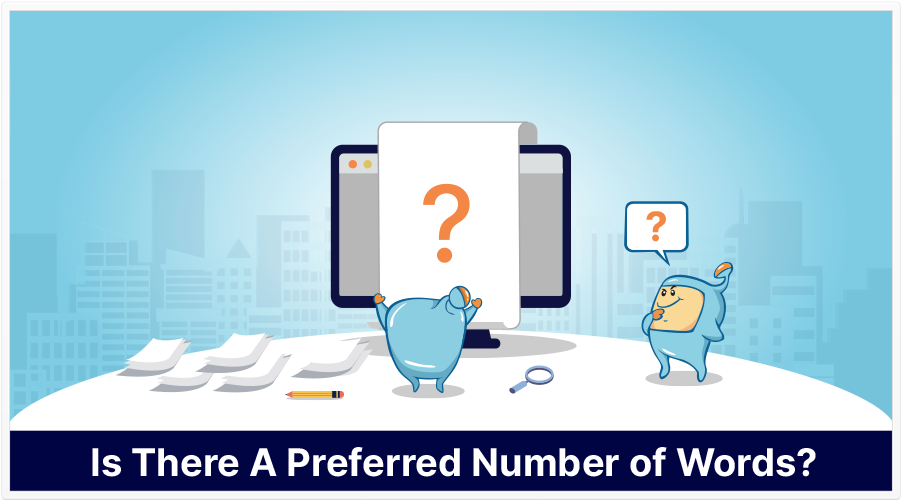
Want to know the best on-page SEO word count to use with your content marketing? We tested it AND we give you the lazy way to do word count for SEO.
What is the best word count? This is one of the top questions many content marketers are asking. They want to know how long their pages should be. More specifically, what’s the best word count and SEO for their content strategy.
There are a lot of theories. We were tired of guessing so we put it to the SEO test. Literally. We built a ten-page test to discover what Google has been hiding from us.
In this article, you will learn how many words you should be using and why it matters. Plus, you’ll learn word count the lazy way.

Many content marketers use Yoast SEO’s plugin for content analysis. The plugin assesses the length of your blog posts or pages on your site. If the length is too short, the recommendation will be to write more long-form content.
If you are using the plugin to assess cornerstone content, Yoast will require your cornerstone content to be longer. You may see the recommendation to make your content page longer.
The Yoast analysis requires regular pages or posts to be longer than 300 words to rank. The theory is that Google needs more words to understand what you text is about. We now know that is not necessarily true.
It’s also said Google tends to rank longer text in pages higher. The longer the blog post length, the better rankings.
Matt Woodward stumbled onto the exact opposite of this when he was using SurferSEO.
In a video, Matt explained how he took a long, cornerstone article and ran it through Surfer SEO.
Surfer SEO recommended he shorten his article. By 22,210 words! That was 85% of his blog post. While he thought decreasing the text on his page was slightly crazy, he shortened his word count.
To his surprise, his article shot to number one in Google.
The time it took to increase the rank of that page just by reducing the number of words? One day.

Yes, word count for SEO does matter… As a starting point.
It’s not the end all to be all, but it is a ranking factor.
We were tired of hearing the theories all the time, so we put the subject to the test. Despite what Google has said over the years, we can confirm that word count does matter in SEO.
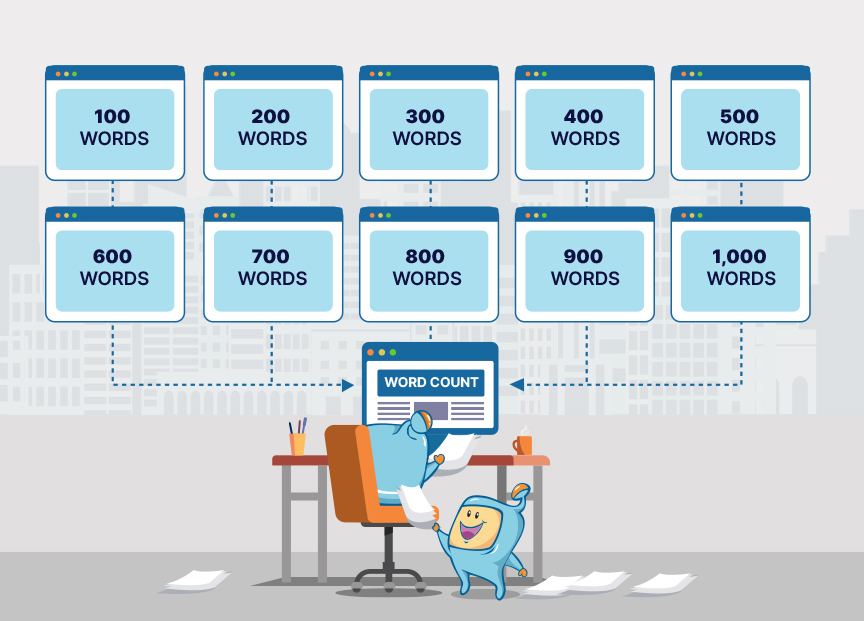
When working with word count, you also have to consider keyword density. The keyword density is defined by the number of words on a page i.e. word counts.
When our SIA testers tested word count, they set up:
We tested those pages against each other using single variable testing. We use single variable testing because we only want to test that one thing.
In each of the test pages, our keyword density was 2%.
Not only did the 1,000 word count page win, but the pages ranked in order from 1,000 words down.
Based on the results from the test, we preformed another word count test to see if the average word count over 1,000 would affect search rankings. We found the average sweet spot is 1,300 words.
This told us that word count mattered when purely looking at content with no other factors involved.
Meaning Google takes word count into consideration when ranking. Because of this, we’ll tell you to pay attention to word count when optimizing your pages.
This has a caveat though. Word count will be trumped by keyword density.

There are several myths about ideal work count.
1: Word length on a page is a hard and fast rule.
The truth is, Google has a different set of ranking rules for different keywords. The best way to know what word count length Google wants for your text is to look at your top 10 competitors.
Type in a keyword. Next, look at the websites that have relevance to that keyword. Find the common text length per page.
2: The longer the blog post the better because Google has more clues to determine what your content is about.
There is more to ranking than just a number of text on a page. Additionally, there is more to Google understanding your article than writing about a subject.
Visit a site in the beauty industry and most text you read will be fluff to meet a word count range. It won’t offer you real value.
It’s important to know that long-form content does not equal deep research. Don’t mistake long articles for value.
The focus should be on the core intent of the article. Not fulfilling word count.
What’s the purpose of the page? What problem can you solve for your user? Make that connection with your human visitor when they land on your page.
When a content marketer writes for word count instead of the audience, they’ll often lose their reader.
A long-form content piece of 3,000 words on what an h1 is might turn your reader off. Chances are they’ll search for another site to answer their question.
3: Higher quality content ranks better in search.
In itself, this is false. Google is not smart enough to read your text with quality in mind. BERT has improved Google’s comprehension but it’s not that smart yet.
That being said, there is a kernel of truth here. People are more apt to read well researched articles.
Google’s Hummingbird algorithm was focused on the user. Articles are only useful if your visitors consume them. If you don’t hold their interest, they will bounce right off your site. Bounce rate can hurt your SEO.
People moving off your page and going back to the search results to find their answer, can hurt your search engine optimization and search rankings. You want your user to end their search queries with your article.
This is a signal that your article is not relevant for that keyword. If your keyword is competitive, this could be enough to drop your ranking position.
4: Shorter content won’t rank.
In the beginning, Google would rank the worst articles. In the industry, marketers could pay $5 for 150-200 words of text that mostly had the keywords horribly stuffed.
They post the text on their site, create a keyword stuffed title and BAM! They were on the first page of Google!
Panda struck down those articles and made thin content bad. Short content and thin content are two different things.
Thin content won’t answer any questions.
Short content can if it fully answers the question. Deep analysis of subjects is not always needed.

About a decade ago, Matt Cutts talked about search engine optimization and text on a page. He said the search bot takes keywords from the post and categorizes them into topics.
The technology used for this is believed to be TF-IDF (term frequency-inverse document frequency), header tags and title tags.
People then believed that it was important to have a long content length where you put keywords in the right places (like your title), the right number of times.
Keyword stuffing became feared in the industry because people were afraid it would hurt their search engine optimization.
Mobile First pretty much killed really long content. Who wants to read a 5,000 word article on an iPhone screen?!?
Google knew this and stopped prioritizing content based on high word count starting with Mobile First.
Then the focus became AI First. The BERT update really introduced us to the AI concept of the machine learning algorithm.
BERT stands for Bidirectional Encoder Representations from Transformers. It uses Natural language processing. Machine learning compares text in a sentence or paragraph to the surrounding text on a page.
This allows for better contextual analysis and understanding of the subject and page.

If you’ve followed us for any length of time, you know that Google lies about what helps a web page rank. In fact, some of our tests have been created based on Google lies.
We test what Google says is NOT an SEO ranking factor or shouldn’t be used in search results optimization.
In 2019, John Mueller stated that there is no magical word counting fairy. He said word count in the text is not an SEO ranking factor.
John Mueller also said, “Some low-quality pages are unsatisfying because they have a small amount of main text for the purpose of the page.
For example, imagine an encyclopedia article [comprehensive content] with just a few paragraphs on a very broad topic such as World War II.
Important: An unsatisfying amount of main text is a sufficient reason to give a page a low-quality rating.”
Our single variable tests proved that wrong. In 3 tests, we showed that Google does have a word count preference. We are in the process of going back and retesting this now for 2021.
Over 3 months, we ran tests with between 100 and 4,000 words on a page.
Rather than a definitive number, Google is more concerned with word count being in a particular range. What we can glean from these tests was that somewhere between 1,100 and 1,600 appears to be the sweet spot. We would still shoot for around 1,300.
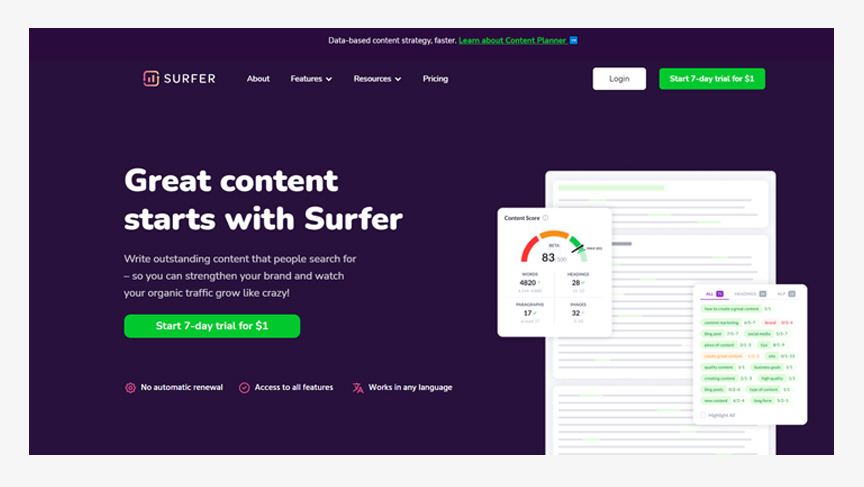
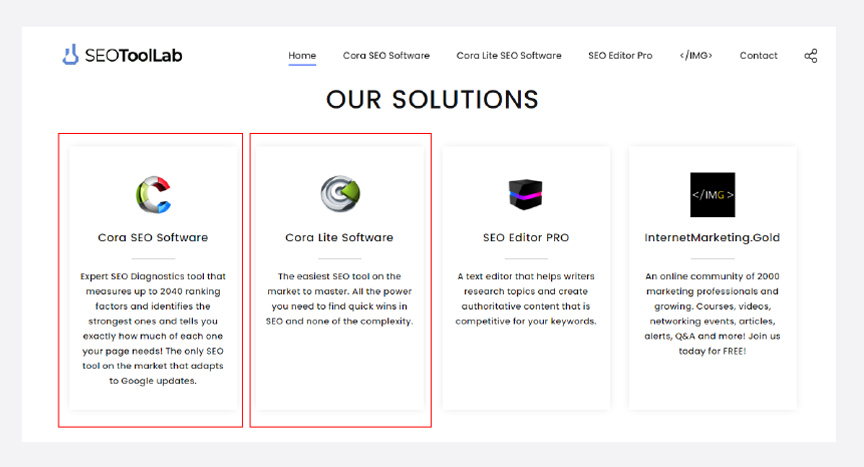
There is no best word count length across the board.
Use a tool like Surfer SEO, Cora Lite or Cora SEO (the original correlation studies software), and do a search query for a specific keyword.
Study the top-ranking web pages for your keyword. From there, do your keyword analysis.
You should understand what you’re considering to be the number of words on a page.
Many word count for SEO tools adds in words from your sidebar and footers and all the other non-body text on a page. While that does count, when you are looking at it from, “how many words do I need to write?” you need just the article section.
You are really competing with the top 10 pages so those are the only ones you need to study in your analysis.
When you have the minimum word count of your competitors, you want to figure out the average of those.
You then want to meet the average word count and then go just a little more than that.

If you don’t want to go to all the trouble to just get content written. You can follow Clint’s method. His method takes out much of the analysis – at first.
You’ll still have to put in the effort, it’s just not all up front.
When Clint has an article written, he sticks to 1,300 words. He puts it through a couple tools like Frase and SurferSeo. He then does basic optimization on the finished article.
For most pages that gets him into a sweet spot. Once in the sweet spot, he can add in other SEO factors and boost the article further if needed.
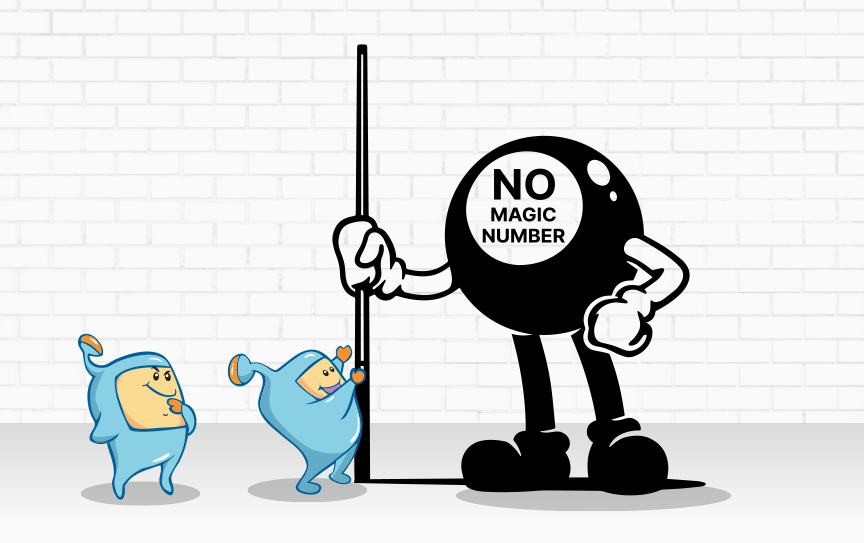
No. It’s not a magic number for everything. Don’t base your entire search result optimization on a magic number. It’s a baseline if you want to avoid upfront competitor analysis.
Sometimes you only need 300 words to say what your reader wants to know. Google will rank you.
Short content can rank quite well too.
A quick analysis shows the number one page for how to make coffee is 514 words. That’s a pretty small article but it still occupies the first spot in Google.
The very top spot for how to restart Garmin Fenix 5 is 17 words. 17 words were enough for Google to put that result in the very top position!
Sometimes you may only need 500 words or you may need 23,000 words of text.
It all depends on your keyword.
You’ll have to do competitor analysis for your search engine optimization to get precise information.
Or start with Clint’s method and see where you land in the SERPs. His method alone allows him to rank for all types of text, without links or an impressive link profile, without multiple target keywords.
There is no magic number when it comes to content length. If your personality style is to cross your t’s and dot your i’s, start with looking at your competitors before writing your article.
If you’d rather some software do the heavy lifting, go with the lazy way method. See where your content lands in the SERPs. Then go back in and apply the SEO strategies that you know. This will help push your post up in Google.